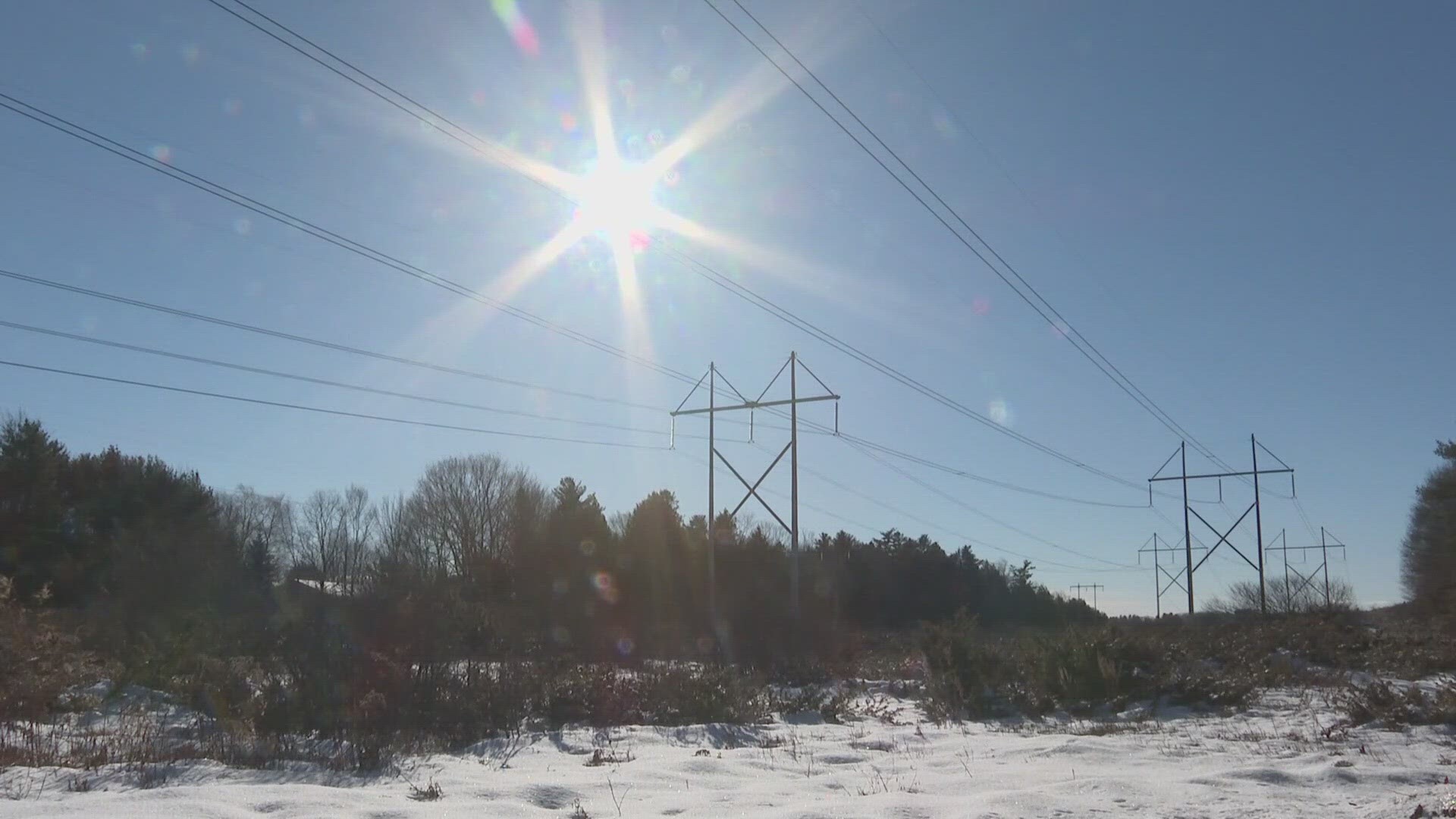MAINE, Maine — As far as this election goes here in Maine, Question 3 has been the most controversial one for many, where supporters and opponents have poured millions of dollars into their campaigns.
Question 3 asks: "Do you want to create a new power company, governed by an elected board, to acquire and operate existing for-profit electricity transmission and distribution facilities in Maine?"
Voting yes is a vote in favor of creating Pine Tree Power.
Voting no opposes the creation of Pine Tree Power.
This measure was created as a way to balance the high rates and customer issues from Central Maine Power and Versant Power.
A study in 2020 by London Economics International found that by having one consumer-owned utility company, Mainers could face higher rates initially, but those fees would go down once Pine Tree Power is up and running.
If more people vote yes and the measure passes, it's estimated to cost anywhere from $6 billion to $13 billion for the new public-owned nonprofit utility company to buy CMP and Versant.
BJ McCollister is the campaign manager for Maine Energy Progress, the committee was created by Versant designed to fight against Question 3.
McCollister said having one public-owned power company is not in the best interest for Mainers.
"I think that there's a lot of good progress that has been made by the Legislature and Gov. [Janet] Mills to improve accountability with the current utilities, but this ballot measure has no plan on how it will improve the utilities," McCollister said. "All it does is gives partisan politicians control of the electric grid, and we know that we do not need that when it comes to keeping our lights on."
McCollister added the proposal doesn't have a stiff plan.
"What we see within the Pine Tree Power proposal is a $13.5 billion debt that Mainers will have to repay on their electric bills and nothing like this has ever been tried at this scale across the country," McCollister said. "In fact, the closest similarity is in New York, where Long Island tried a similar experiment, and their electric rates went up by 50 percent. They were whacked with new surcharges, and it became the lowest-rated consumer utility in the nation. We don't want to bring New York's problems to Maine."
Al Cleveland is the campaign manager for Yes on Question 3, which supports the creation of Pine Tree Power.
Cleveland said our state's electric grid will become more reliable and affordable if people vote yes and create this utility owned by Mainers rather than foreign corporations.
"Central Maine Power and Versant Power took $187 million of profit out of Maine last year while we have the worst customer service in the nation and the worst reliability with our electric grid," Cleveland said. "Consumer-owned utilities in Maine and across the country save money, have better reliability, because they are accountable to the people they serve, not just increasing profit to corporations and foreign governments."
Cleveland also estimates Pine Tree Power would save Mainers $9 billion over 30 years.
"A utility that is accountable to Maine people, because it's run by Maine people, so we can save money by operating as a nonprofit, we can increase our reliability by investing in the technology that we need to have lower outages and we can have local control of our grid, meaning the people who run our power represent us and not foreign governments who are trying to make a profit off of Mainers," said Cleveland.
Voting no on Question 3 means CMP and Versant stay operating just as they are, but voting yes would mean you are in favor of creating this public-owned nonprofit utility company, which is Pine Tree Power.
It is not clear yet how much Mainers will actually have to pay for their electricity under Pine Tree Power.
To learn more about Pine Tree Power, click here.
Click here to read a summarized version by Bill Dunn of the 100-page report from London Economics International by the Maine Public Utilities Commission.

